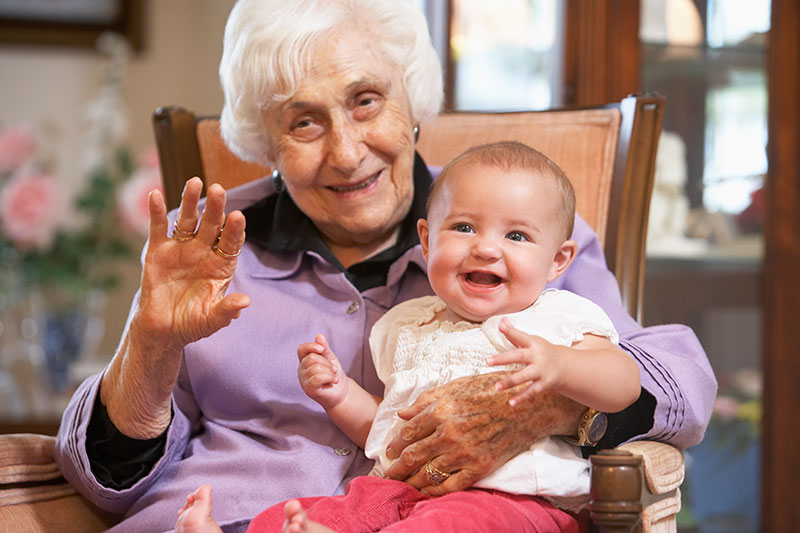Watch what occurs at the next family get together when a brand new mom places her infant in someone’s arms. The person is likely to transition immediately into baby mode: a high-pitched, sing-song voice, exaggerated facial expressions, and overly-simplified speech. Of course, this is quite normal and actually good for a baby's developing brain.
Hopefully, however, when that baby’s great-grandmother enters the room, loved ones avoid reacting similarly. Yet it happens so frequently, and can be so damaging to seniors, that there’s a word to describe it: elderspeak.
A recent research study by Susan Kemper, a professor who specializes in gerontology at the University of Kansas, paired elderly listeners with younger speakers. In spite of the seniors’ instructions to simply listen without interrupting while the younger people spoke to them – thus leaving no hint to the speakers that they were experiencing any difficulty understanding what was being said – overwhelmingly, the speakers resorted to elderspeak.
It is worthwhile to note as well that older adults regularly refrain from using elderspeak with each other. Research has found that for a lot of older adults, elderspeak conveys superiority and a cold attitude.
Why It’s Harmful
Simply put, elderspeak can be regarded as belittling and patronizing. It communicates feelings of inferiority and incompetency to older adults, instead of the respect and admiration they deserve. While typically well-meaning and intended to convey endearment, it frequently has the reverse effect.
What to Do Instead
- Carefully consider how to address the older adults in your life. Many seniors find terms such as “young lady,” "dearie," or "honey" to be offensive.
- Use care when modifying how you speak to a senior according to individual need. For example, speaking slowly and clearly while facing a senior loved one with hearing loss is beneficial. A high-pitched voice, however, can in fact further distort the words. A senior with memory issues can better follow the conversation if it's broken down into simple, short sentences and yes-or-no questions. This can very easily be accomplished without falling back to baby talk.
- Remember there is no one-size-fits-all approach, as every person has unique preferences and challenges. An honest and open conversation with the person about how precisely they would like to be addressed and spoken to is the ideal path to ensure you are engaging with them appropriately.
Amy’s Helping Hands, the Windsor-Essex home care experts, places a great focus on respectful interactions with each senior in our care. Email or call us at 519.915.4370 for an in-home consultation to find out exactly how we can help promote independence for seniors with personalized in-home support.















